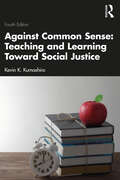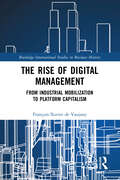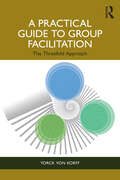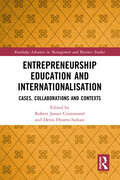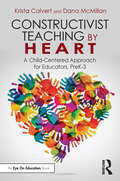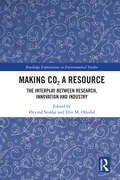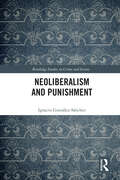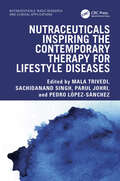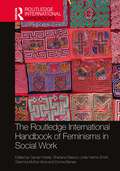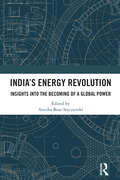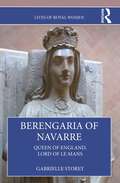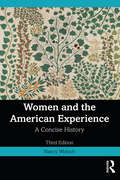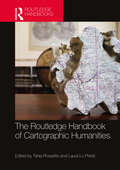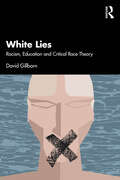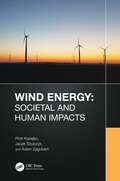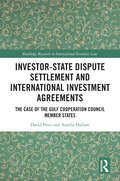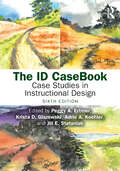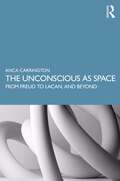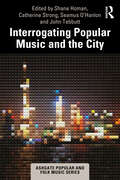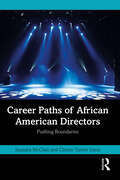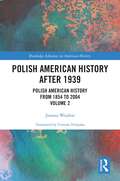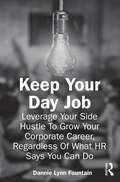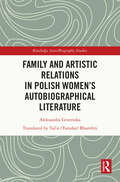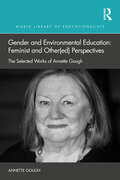- Table View
- List View
Against Common Sense: Teaching And Learning Toward Social Justice
by Kevin K. KumashiroWhat does it mean to teach for social justice? Drawing on his own classroom experiences, leading author and educator Kevin K. Kumashiro examines various aspects of anti-oppressive teaching and learning and their implications for six different subject areas and various grade levels. Celebrating 20 years as a go-to resource for K-12 teachers and teacher educators, this 4th edition of the bestselling Against Common Sense: Teaching and Learning Toward Social Justice features:• An expanded introduction that examines teaching in today’s context of censorship and attacks on diversity, democracy, and teaching truth;• New sections on teacher preparation, social studies, reading and writing, and the arts;• Updated lists of resources in every chapter;• Graphics, teacher responses, and discussion questions to enhance comprehension and help translate theory into practice across the disciplines.Compelling and accessible, the 4th edition of Against Common Sense continues to offer readers the tools they need to begin teaching against their commonsensical assumptions and toward democracy and justice.
The Rise of Digital Management: From Industrial Mobilization to Platform Capitalism (Routledge International Studies in Business History)
by François-Xavier de VaujanyThis book analyzes the history of management, placing it in perspective with both American history and the genealogy of digital technology. Focusing on the years of industrial mobilization in the United States (from 1937 to 1945) and their extension into the Cold War, it shows particularly how "scientific management" was reconfigured and re-legitimized in favor of a new profoundly American geopolitics. In a context where the future was at a standstill, this research also explains what became of the managerial processes at the heart of capitalism from the 40s onwards: the shift from a managerial capitalism of calculation to a narrative capitalism made up of "desiring machines". This digital management no longer simply contributes, along with others, to unveiling and revealing the future. Aligned with the American obsession with novelty, it is the very process of revelation and unveiling, with managers and consumers alike becoming the intersecting subjects of desires borne of managerial apocalypses.To explore this period of American history, the author has combined a triple narrative anchored in three types of archives: an intimate history of this reconfiguration from the presence in New York of Saint-Exupéry, Burnham and Wiener; a description of the great historical moment of industrial mobilization; and a philosophical speculation about reconfiguration and its links to American history.
A Practical Guide to Group Facilitation: The Threefold Approach
by Yorck von KorffA Practical Guide to Group Facilitation introduces a unique threefold approach to facilitation, blending Person-Centered Practice, system knowledge, and method expertise together. It serves as a comprehensive resource for facilitators seeking to enhance their professional skills.The book delves into the significance of Person-Centered Practice as the cornerstone of facilitation, exploring personal facilitator qualities like congruence, empathic listening, and unconditional positive regard, inspired by the principles of Carl Rogers. It successfully integrates Jane Loevinger's personal development theories with facilitator skill development, illustrating the symbiotic relationship between personal growth and effective facilitation. Additionally, the book incorporates Nonviolent Communication (NVC) into the facilitator's toolkit, offering practical strategies for navigating challenging situations. It covers a spectrum of facilitation methods, from structured approaches to the Person-Centered style of Carl Rogers, equipping facilitators to face diverse group contexts.Presenting valuable skills and insights to enhance professional practice, this book will be highly relevant reading for facilitators, mediators, and those offering training. It will also be useful reading for professionals in participatory processes such as coaches, team leaders, organizational leaders, managers, and mentors.
Entrepreneurship Education and Internationalisation: Cases, Collaborations and Contexts (ISSN)
by Denis Hyams-Ssekasi Robert James CrammondEntrepreneurship Education and Internationalisation: Cases, Collaborations and Contexts provides a wide-ranging overview of entrepreneurship education today from a global perspective. Comprising three parts that address teaching and learning, support and outcomes, and strategic themes, international educators and researchers present examples of entrepreneurship education in action within many contexts. Chapters discuss across many academic fields and taught disciplines, involving many industry stakeholders concerning enterprise and business creation and development, and acknowledge policy and policymakers within local, national, and international government or educational forums.Chapters showcased within this edited book range from collaborative teaching case studies, course teaching styles and assessment strategies, and display links with national or international industry partners. Furthermore, incubation opportunities, examples of accelerator and university start-ups or spinouts, cross-continent partnerships for entrepreneurship, and other relevant enterprising activity between universities and industry or societal groups are also examined and appreciated.
Constructivist Teaching by Heart: A Child-Centered Approach for Educators, PreK-3
by Krista Calvert Dana McMillanThis insightful book offers a modern take on the time-honored tradition of developmentally appropriate, child-centered, constructivist philosophy of instruction: Teaching children one at a time, yet all at once. The book provides a comprehensive road map to teaching that supports student engagement, child development, classroom environment, grouping and organization, authentic literacy instruction, and culturally informed practices.Through a series of practical chapter essays and examples, the authors push back against scripted curricula and "one-size-fits-all" school initiatives, offering instead rich examples and guiding questions to bring you closer to an authentic teaching approach that honors students and their learning.Designed for early childhood through third-grade teachers, principals, administrators, and pre-service students, Constructivist Teaching by Heart is essential reading for professional development, peer discussions, university coursework, individual study, and everyone on the journey to making children the heart of their classrooms.
Making CO2 a Resource: The Interplay Between Research, Innovation and Industry (Routledge Explorations in Environmental Studies)
by Elin M. Oftedal Øyvind StokkeThis interdisciplinary book explores how CO2 can become a resource instead of a waste and, as such, be a tool to meet one of the grandest challenges humanity is facing: climate change.Drawing on a Norwegian narrative that has significance for a global audience, Øyvind Stokke and Elin Oftedal introduce in-depth, multi-perspective analyses of a sustainable innovation research experiment in industrial carbon capture and utilisation technologies. Building on extensive literature within marine sciences, sustainability research, and environmental philosophy and ethics, this book documents how a misplaced resource like CO2 can become valuable within a circular economy in its own right, while at the same time meeting the challenge of food security in a world where food production is increasingly under pressure. The book is diverse in scope and includes chapters on how to reduce the environmental footprint of aquaculture by replacing wild fish and soy from the Amazon, how to optimise the monitoring of aquatic environments via smart technologies, and how to replace materials otherwise sourced from natural environments. The authors also analyse the pivotal role of the university in driving innovation and entrepreneurship, the pitfalls of different carbon technologies, and explore how the link between petroleum dependence and CO2 emissions has been addressed in Norway specifically.Making CO2 a Resource will be of great interest to students and scholars of climate change, environmental ethics, environmental philosophy, sustainable business and innovation, and sustainable development more broadly.
Neoliberalism and Punishment (Routledge Studies in Crime and Society)
by Ignacio González-SánchezExploring the expansion of the penal system in Spain during the first 40 years of democracy, this book puts forward the importance of studying punishment from a sociological perspective and examines the neoliberal penality thesis.Today, Spain has more police officers and more people in prison than 50 years ago and a tougher penal code than that which existed at Franco’s death; however, crime has not increased for three decades, while most of the hardening of the penal system has occurred after its stabilisation. Studying the development of penality in Spanish democracy, this book explores Loïc Wacquant’s proposal that the expansion of the penal system should be understood as a characteristic of neoliberalism. It examines the parallel and reciprocal development of three policies in relation to the gradual implementation of neoliberal ideas and highlights how the evolution of the labour market, social policies, and the penal system are linked to one another and to neoliberal ideas related to the sacralisation of the utilitarian individual and the role of the state.Advocating for a sociological study of state punishment and contributing to a better understanding of the implementation of neoliberal policies, Neoliberalism and Punishment will be of great interest to students and scholars of criminology, sociology, and politics.
Nutraceuticals Inspiring the Contemporary Therapy for Lifestyle Diseases (Exploring Medicinal Plants)
by Sachidanand Singh Parul Johri Mala Trivedi Pedro López-SánchezIn today's fast-paced and modern world, our lifestyles have undergone a dramatic shift. The conveniences and comforts that accompany our technological advancements have come at a cost – an increased prevalence of lifestyle diseases. Lack of physical activity, stress, sedentary habits, and poor dietary choices have become leading causes of a spurt in varied health complications such as obesity, diabetes, and cardiovascular diseases. Various health awareness programmes organized by central/state governments, private organizations, and NGOs from time to time have generated interest among common people in exploring organic foods that are free from chemicals and full of nutraceuticals. There has been a growing interest in exploring the potential of nutraceuticals to address lifestyle diseases.Recognizing the urgent need to address this global health crisis, this book delves into a realm of science that offers immense potential for improving our health and well-being. Nutraceuticals, which combine "nutrition" with "pharmaceuticals," offer a promising strategy for treating certain conditions caused by a particular way of life. They include a variety of bioactive substances obtained from plants, including fruits, vegetables, herbs, and marine organisms. Certain substances have therapeutic qualities and have shown significant promise in treating and even preventing certain disorders.Features: The chapters in this book have been meticulously curated to provide readers with a diverse range of perspectives. Provides a comprehensive exploration of nutraceuticals and their potential benefits. Examines the impact of specific nutraceuticals on various lifestyle diseases to discuss their synergistic effects and potential adverse reactions. Each chapter offers valuable insights and practical guidance for healthcare professionals, researchers, and individuals seeking to enhance their overall well-being. A systematic overview of the state-of-the-art in nutraceuticals with recent research results. This book will certainly be a valuable resource for researchers engaged in studies on nutraceuticals to develop a depth of understanding of the latest trends and tools in this field. Additionally, it can serve as a comprehensive textbook for graduate-level courses in food and nutrition, biomedical, and health sciences.
The Routledge International Handbook of Feminisms in Social Work (Routledge International Handbooks)
by Carolyn Noble Donna Baines Shahana Rasool Linda Harms-Smith Gianinna Muñoz-ArceThis handbook highlights innovative and affect-driven feminist dialogues that inspire social work practice, education, and research across the globe. The editors have gathered the many (at times silenced) feminist voices and their allies together in this book which reflects current and contested feminist landscapes through 52 chapters from leading feminist social work scholars from the many branches and movements of feminist thought and practice. The breadth and width of this collection encompasses work from diverse socio-political contexts across the globe including Central and South America, Africa, Asia, the Middle East, Europe, North America, Aotearoa New Zealand and Australia. The book is divided into six parts as follows:• Decoloniality, Indigeneity and Radical Theorising• Feminist Social Work in Fields of Practice• Academy and Feminist Research• The Politics of Care• Allyship, Profeminisms and Queer Perspectives• Social Movements, Engaging with the Environment and the More-than-HumanThe above sections present the diverse feminisms that have influenced social work which provides a range of engaging, informative and thought-provoking chapters. These chapters highlight that feminists still face the battle of working towards ending gender-based violence, discrimination, exploitation and oppression, and therefore it is urgent that we feature the many contemporary examples of activism, resistance, best practice and opportunities to emphasise the different ways feminisms remain central to social work knowledge and practice.It will be of interest to all scholars and students of social work and related disciplinary areas including the social and human sciences, global and social politics and policy, human rights, environmental and sustainability programmes, citizenship and women’s studies.
India’s Energy Revolution: Insights into the Becoming of a Global Power
by Annika Bose StyczynskiIndia is the third-largest emitter of greenhouse gases, which makes it an important player whose climate mitigation actions and inactions are closely scrutinised. This book studies developments in India’s energy system from a governance perspective. It presents a unique compilation and synthesis of research findings that capture achievements, shortcomings, and persistent and transient challenges of India’s transition towards a net-zero economy by 2070.The book grounds its analysis in domestically formulated goals and reflects on dynamics at the structural level of India’s multi-scalar innovation system, by highlighting the influencing factors of energy system status and change. It presents the perspectives and positions of different actor groups, studies the market and business, and discusses cases influenced by existing or changing institutions across the whole spectrum of energy resources from fossil to non-fossil fuels and respective technologies.The volume will be useful for students and researchers in energy governance, energy policy and economics, socio-technical transition studies, energy systems engineering, sustainable development, and environmental studies. It will also be of interest to policymakers and investors.
Berengaria of Navarre: Queen of England, Lord of Le Mans (Lives of Royal Women)
by Gabrielle StoreyBerengaria of Navarre was queen of England (1191–99) and lord of Le Mans (1204–30), but has received little attention in terms of a fully encompassing biography from Navarrese, Anglophone, and French perspectives. This book explores her political career whilst utilising the surviving documentation to demonstrate her personal and familial partnerships and life as a dowager queen.This biography follows Berengaria’s journey from a Navarrese infanta, raised in the northern Iberian kingdom, to her travels across Europe to marriage and the Third Crusade, venturing through Sicily, Cyprus, and on to the Holy Land in 1191. Berengaria’s reign and early years as dowager queen are examined in the context of the Anglo-French conflict and domestic disputes, before her decision to negotiate with the king of France, Philip Augustus, and become lord of Le Mans, for which she is far better known in local memory.The volume flows chronologically discussing her roles as infanta, queen, dowager, and lord, and is an ideal resource for scholars and those interested in the history of gender, queenship, lordship, and Western Europe in the twelfth and thirteenth centuries.
Women and the American Experience: A Concise History
by Nancy WolochThe third edition of Women and the American Experience: A Concise History is a comprehensive survey of U.S. women’s history from the seventeenth century to the present that illuminates the diversity of women’s experience and underscores the roles that women have played as agents of change.Moving women’s lives from the margins of history into the spotlight, the text draws links between women’s experience and traditional facets of history, such as colonization, industrialization, politics, and war. This new edition grapples with emerging themes and debates in the field. A new chapter covers the Civil War and emancipation. Discussions of current issues include the COVID-19 pandemic and its impact on women’s health and work, the #MeToo movement, transgender activism, reproductive rights, and the ERA. Updated suggestions for further reading reinforce evolving trends in women’s history.Used often to shape college curricula and revised to include recent research, this book is designed to serve students, teachers, and general readers concerned with U.S. history and women’s past.
The Routledge Handbook of Cartographic Humanities
by Tania Rossetto Laura Lo PrestiThe Routledge Handbook of Cartographic Humanities offers a vibrant exploration of the intersection and convergence between map studies and the humanities through the multifaceted traditions and inclinations from different disciplinary, geographical and cultural contexts.With 42 chapters from leading scholars, this book provides an intellectual infrastructure to navigate core theories, critical concepts, phenomenologies and ecologies of mapping, while also providing insights into exciting new directions for future scholarship. It is organised into seven parts: Part 1 moves from the depths of the humans–maps relation to the posthuman dimension, from antiquity to the future of humanity, presenting a multidisciplinary perspective that bridges chronological distances, introspective instances and social engagements. Part 2 draws on ancient, archaeological, historical and literary sources, to consider the materialities and textures embedded in such texts. Fictional and non-fictional cartographies are explored, including layers of time, mobile historical phenomena, unmappable terrain features, and even animal perspectives. Part 3 examines maps and mappings from a medial perspective, offering theoretical insight into cartographic mediality as well as studies of its intermedial relations with other media. Part 4 explores how a cultural cartographic perspective can be productive in researching the digital as a human experience, considering the development of a cultural attentiveness to a wide range of map-related phenomena that interweave human subjectivities and nonhuman entities in a digital ecology. Part 5 addresses a range of issues and urgencies that have been, and still are, at the centre of critical cartographic thinking, from politics, inequalities and discrimination. Part 6 considers the growing amount of literature and creative experimentation that involve mapping in practices of eliciting individual life histories, collective identities and self-accounts. Part 7 examines the variety of ways in which we can think of maps in the public realm. This innovative and expansive Handbook will appeal to those in the fields of geography, art, philosophy, media and visual studies, anthropology, history, digital humanities and cultural studies as well as industry professionals.
White Lies: Racism, Education and Critical Race Theory
by David GillbornUnpacking Critical Race Theory (CRT) and exploring why it has become a focus in politics across the US and the UK, White Lies uses CRT to expose the systemic racism that shapes education. It charts the coordinated campaigns – involving think tanks, mainstream media and politicians – that have tried to silence antiracism in the wake of George Floyd's murder and 'Black Lives Matter'.Each chapter is devoted to exposing a key ‘white lie’ by examining the evidence that shows how the interests of white people continue to occupy centre stage and block movement towards a more equitable education for all. Gillborn establishes how the public debates, shaped by misinformation and 'white lies', sustain race inequity and portray antiracism as a threat to freedom and justice. Key controversies are dissected and debunked, including: the extensive and coordinated anti-CRT campaigns in the US and the UK; the use of racial gaslighting to undermine claims to social justice; how multiple forms of intimidation are used to silence antiracist teaching and protest; the inaccurate portrayal of the white working class as race victims; and how cruelty, in policy, aims to unify whites and demonize minorities. By avoiding unnecessary jargon to make complex debates accessible to a wide audience, this book is ideal reading for anyone studying CRT or interested in the topic of contemporary educational equality.
Wind Energy: Societal and Human Impacts
by Piotr Kacejko Jacek Szulczyk Adam ZagubieńWind Energy: Societal and Human Impacts presents the theoretical basis for the various impacts of wind turbines on humans. These impacts include noise (in the audible, low-frequency and infrasound ranges), visual effects (shadow flicker and light reflections), electromagnetic fields, vibrations and oscillations from wind turbines, as well as mechanical impacts and physical risk related to turbine collapse or turbine component failure, throwing of ice or blade parts, fires, etc. Further, this book examines the legal framework, policy approaches and investment processes in the wind energy sector. It addresses the issue of siting and minimum distances between turbines and residential buildings and proposes modifications to legislation, as well as guidelines and recommendations related to environmental impact reports for wind farms, assessment of such reports, monitoring of such impacts and the performance of a post-implementation analysis.
Investor-State Dispute Settlement and International Investment Agreements: The Case of the Gulf Cooperation Council Member States (Routledge Research in International Economic Law)
by David Price Amelia HallamThis book examines the international investment agreements and the dispute settlement mechanisms contained therein, which bind the Gulf Cooperation Council member States.The Gulf Cooperation Council (GCC), comprising Bahrain, Kuwait, Oman, Qatar, Saudi Arabia, and the United Arab Emirates, is complex and unique. Recently, all member States have experienced increasing investor–state arbitration claims, while their nationals are increasingly instituting investor–state arbitrations to protect their own foreign investments. Intra-GCC disputes, though relatively rare, have also appeared, largely as a result of the recent Gulf crisis. While focussing particularly upon the investor–state dispute settlement experience of member States as respondents, the book also explores the experiences of their nationals as claimants to determine how they can approach investor– state dispute settlement in the future. The book also reflects on existing treaty-making practices, making recommendations for regional-level dispute settlement to improve upon investor–state dispute settlement outcomes.This book provides a detailed analysis of the global investor–state dispute settlement regime and international investment agreements, and it will be of interest to students, academics, and practitioners with an interest in international investment law and arbitration.
The ID CaseBook: Case Studies in Instructional Design
by Peggy A. Ertmer Krista D. Glazewski Jill E. Stefaniak Adrie A. KoehlerThe ID CaseBook provides instructional design students with 25 realistic, open-ended case studies that encourage adept problem-solving across a variety of client types and through all stages of the process. After an introduction to the technique of case-based reasoning, the book offers four sections dedicated to K–12, informal learning, post-secondary, and industry clients, respectively, each comprising varied, detailed cases created by instructional design experts. All cases, alongside their accompanying discussion questions, encourage students to analyze the available information, develop action plans, and consider alternative possibilities in resolving problems. This revised and updated sixth edition attends to the profound impacts that public health crises; urgent access, equity, and inclusion needs among diverse learners; and a rapidly expanded reliance on digital learning formats have had on the design of learning today.
The Unconscious as Space: From Freud to Lacan, and Beyond
by Anca CarringtonThe Unconscious as Space explores the experience of being and the practice of psychoanalysis by thinking of the unconscious in mathematical terms.Anca Carrington introduces mathematical models of space, from dimension theory to algebraic topology and knot theory, and considers their immediate psychoanalytic relevance. The hypothesis that the unconscious is structured like a space marked by impossibility is then examined. Carrington considers the clinical implications, with particular focus on the interplay between language and the unconscious as related topological spaces in which movement takes place along knot-like pathways.The Unconscious as Space will be of appeal to psychotherapists, psychoanalysts and mental health professionals in practice and in training.
Interrogating Popular Music and the City (ISSN)
by Catherine Strong Shane Homan Seamus O'Hanlon John TebbuttHow does popular music influence the culture and reputation of a city, and what does a city do to popular music? Interrogating Popular Music and the City examines the ways in which urban environments and music cultures intersect in various locales around the globe. Music and cities have been partners in an often clumsy, sometimes accidental but always exciting dance. Heritage and immigration, noise and art, policy and politics are some of the topics that are addressed in this critical examination of relationships between cities and music. The book draws upon an international array of researchers, encompassing hip hop in Beijing; the city favelas of Brazil; from Melbourne bars to European parliaments; to heritage and tourism debates in Salzburg and Manchester. In doing so, it interrogates the different agendas of audiences, musicians and policy-makers in distinct urban settings.
Career Paths of African American Directors: Pushing Boundaries
by Saundra McClain Clinton Turner DavisCareer Paths of African American Directors is a collection of in-depth conversations with African American directors.These conversations provide an insightful overview of the interviewees’ work and artistic vision and explore their personal influences, aesthetic philosophies, directorial styles, and some of the creative successes they achieved while navigating the obstacles, challenges, and biases encountered while establishing their careers in American theatre. The directors are presented with similar core questions as well as pertinent questions related to their own aesthetics, philosophy, and career. Often, these selected directors’ productions are grounded in a non-European aesthetic and philosophy, and their directorial styles are refracted through the prisms of ethnicity, gender, race, and culture, thus bringing a fresh approach to their work and the art of directing.Career Paths of African American Directors will be of interest to actors, early career and established directors, and students of Acting, Directing, and Theatre Studies.
Polish American History after 1939: Polish American History from 1854 to 2004, Volume 2 (ISSN)
by Joanna WojdonThis book is the second in a three-part, multi-authored study of Polish American history which aims to present the history of Polish Americans in the United States from the beginning of Polish presence on the continent to the current times, shown against a broad historical background of developments in Poland, the United States and other locations of the Polish Diaspora.According to the 2010 US Census, there are 9.5 million persons who identify themselves as Polish Americans in the United States, making them the eighth largest ethnic group in the country today. Polish Americans, or Polonia for short, has always been one of the largest immigrant and ethnic groups and the largest Slavic group in America. Despite that, common knowledge about its social and political life, culture and economy is still inadequate – in Academia and among the Polish Americans themselves. The book discusses the major themes in Polish American history, such as organizational life and the structure of the community facing subsequent waves of immigration from Poland, its leadership and political involvement in Polish and American affairs, as well as living and working conditions, and the everyday life of families and communities, their culture, ethnic identity and relations with the broadly understood American society, starting from the outbreak of World War 2 in Poland in September, 1939, and ending with the highlights of the 21st-century developments. It depicts Polish Americans’ transition from a ‘minority’ through ‘ethnic’ group to Americans who take pride in their symbolic ethnicity, maintained intentionally and manifested occasionally.This volume will be of great value to students and scholars alike interested in Polish and American History and Social and Cultural History.
Keep Your Day Job: Leverage Your Side Hustle To Grow Your Corporate Career, Regardless Of What HR Says You Can Do
by Dannie FountainAs millennials and Gen Z grow their influence in the workplace, side hustling and overemployment are emerging from the dark corners of the corporate world—but many companies still resist this trend. How can employees leverage the shifting power dynamic to build their own empires? Build now and ask forgiveness later: this book shows you how. Rich with insights from personal experience and doctoral research, this is the story of more than a decade of side hustling alongside successes, and failures, in a career in corporate America. But more importantly, it is a roadmap on how to successfully incorporate a side hustle into your life in a way that supports your day job too. Not everyone starts a side hustle to eventually quit their day job, and many individuals enjoy and take pride in the dual incomes they can earn this way. This book centers and prioritizes this path. No matter their industry, this book will resonate with readers who have been burned by their side hustle (or fear that they might be), as well as HR professionals who want to support change in corporate America and leaders who value and prioritize innovation to impact their workforce for the better.
Family and Artistic Relations in Polish Women’s Autobiographical Literature (ISSN)
by Aleksandra GrzemskaFamily and Artistic Relations in Polish Women’s Autobiographical Literature examines women’s autobiographical works published in Poland after the year 2000 in a broader cultural context. This volume focuses on the writers’ representation of their relationships with their mothers – many of them traumatized survivors of historical cataclysms, many of them professional artists, many of them struggling to reconcile their creative work with their role as wife and mother. Grzemska sheds light not only on the literary strategies used by the memoirists, but she also helps us understand women’s struggles for an independent voice, for new models of commemoration, for healing. This book will interest readers in literary and cultural studies, as well as anyone who wishes to better understand Poland’s cultural transformations in the post-Communist era.
Gender and Environmental Education: The Selected Works of Annette Gough (World Library of Educationalists)
by Annette GoughThis timely book provides a starting point for critical analysis and discourse about the status of gendered perspectives in environmental education research.Through bringing together selected writings of Annette Gough, it documents the evolving discussions of gender in environmental education research since the mid-1990s, from its origins in putting women on the agenda through to women’s relationships with nature and ecofeminism, as well as writings that engage with queer theory, intersectionality, assemblages, new materialisms, posthumanism and the more-than-human. The book is both a collection of Annette Gough, and her collaborators, writings around these themes and her reflections on the transitions that have occurred in the field of environmental education related to gender since the late 1980s, as well as her deliberations on future directions.An important new addition to the World Library of Educationalists, this book foregrounds women, their environmental perspectives, and feminist and other gendered research, which have been marginalised for too long in environmental education.
College 101: A Girl's Guide To Freshman Year (rev. Ed. )
by Julie Zeilinger Anna KoppelmanCollege 101: A Girl's Guide to Freshman Year is a comprehensive and authentic guide for girls to everything college from girls who just went through it!Combining honest, humorous, and relatable first-person perspectives with expert advice, this dynamic guide shows girls what to really expect from their first year of college, including pro tips and common pitfalls to avoid. From managing academics and navigating new social situations, to avoiding debt and getting enough sleep, this book honestly answers all your questions about university life, including those you didn't even know you had!Full of valuable information and must-know secrets about freshman year, College 101 is a must-read for girls who want not only to survive but also actually enjoy their first college experience.
